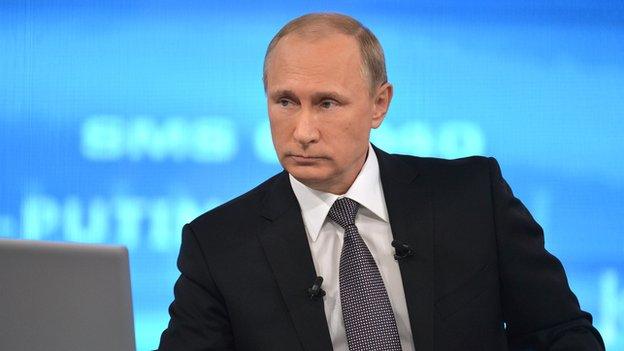Ukraine crisis: The factory that has been shelled 165 times
- Published
A glimpse inside Ukraine's coking plant
Before the war in eastern Ukraine began, this plant near the frontline produced 12,000 tonnes of coke per day, with a value of $2.4m (£1.6m; €2.2m). Since then, production has fallen by two thirds.
The plant is located in Avdiivka, a town which was held by pro-Russian forces until Ukrainian government troops won it back last summer. But there is another battle going on here - a battle to keep it open.
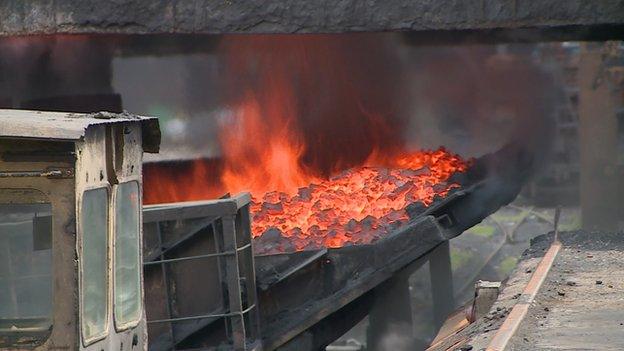
Coke is produced by heating coal at high temperatures. It is a fuel used in the steel-making process, which is vital for this region's - and Ukraine's - economy.
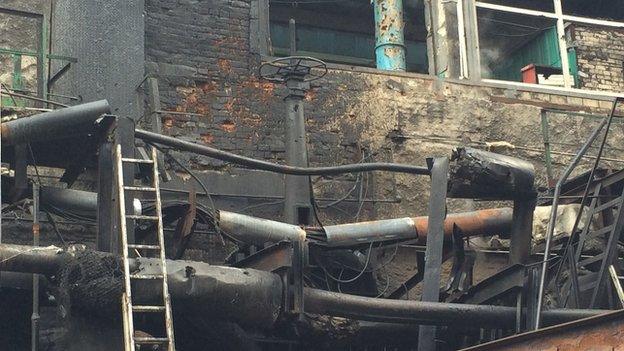
The plant has been hit by mortars and shells 165 times. This photo (above) shows the damage from one explosion to a section of pipes, which often carry dangerous gases.
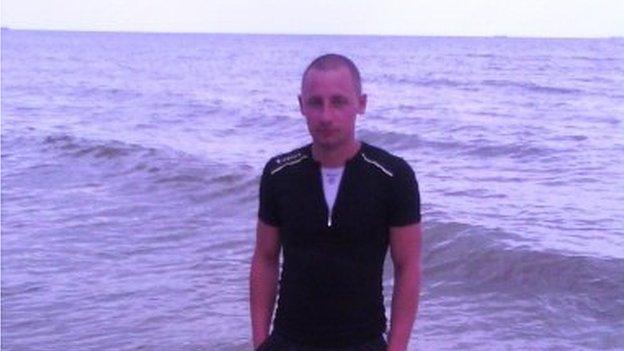
In February, 25-year-old Sergei Kruglenko had just arrived at work with his father Viktor when a shell hit. Sergei, who has two young children, was killed by the blast.
Viktor Kruglenko says his son was killed instantly by a shell
Viktor said his son, Sergei, liked writing poetry. His notebook was destroyed in the explosion and was never found.
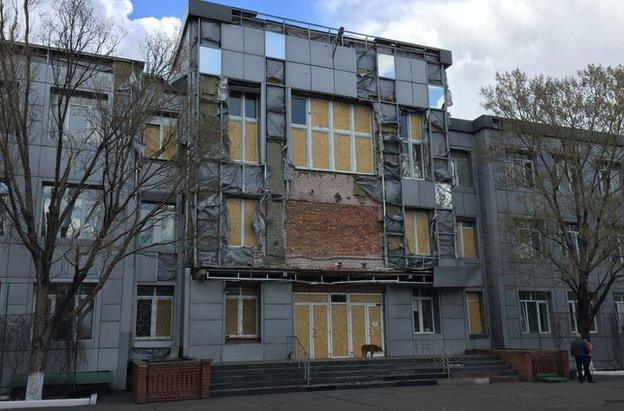
The plant's adjacent offices have been badly damaged. Four other employees of the plant who lived in the local area have been killed by the fighting.
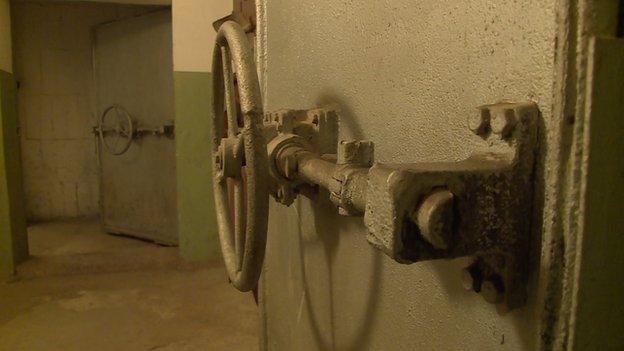
Underneath the offices there is a Soviet-era bunker, which was built for a possible third world war.
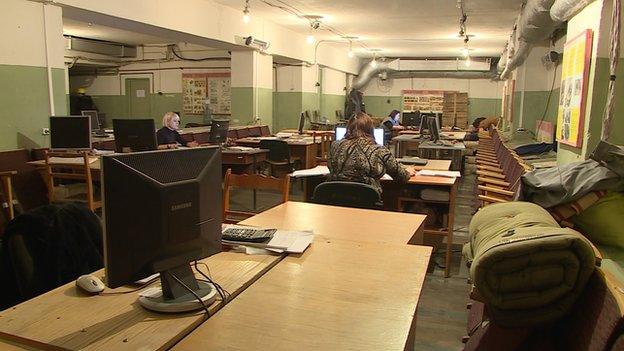
The bunker has been turned into an underground office for some staff, who have also started sleeping and spending the time here so they are safe from the shelling.
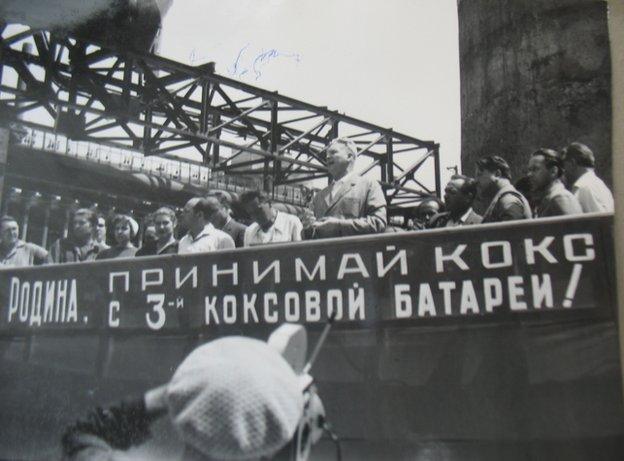
The Avdiivka Coke and Chemical plant was built in 1963, when Ukraine was part of the Soviet Union.
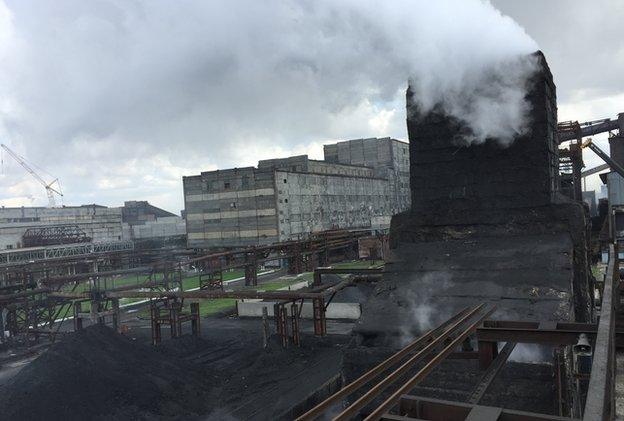
Nearly all the coal which the plant uses to make the coke comes from two local mines. One is located in territory held by Ukraine's government. The other is on the other side of the war's frontline, in the self-proclaimed republic which is allied to Russia.
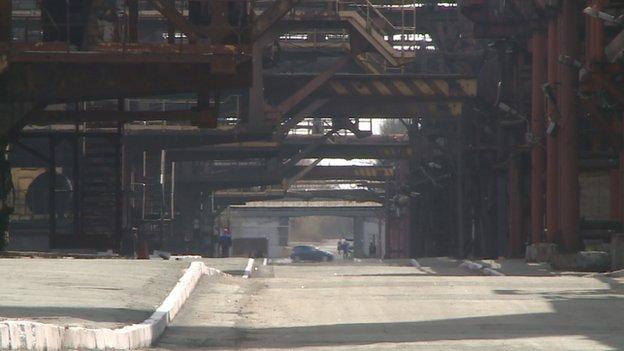
The plant is owned by the company Metinvest, which is part of the business empire of Ukraine's richest oligarch, Rinat Akhmetov. He owns Shakhtar Donetsk football club, and according to Forbes is worth $7.2bn. When the war started in eastern Ukraine, Mr Akhmetov's allegiance was unclear, but he later declared his support for Ukraine's government.
Manager Musa Magomedov says the factory is a "symbol of resilience"
Manager Musa Magomedov says the plant has become a symbol of resilience and the desire of people in this region for peace. "War has taken everything that our fathers and grandfathers built."
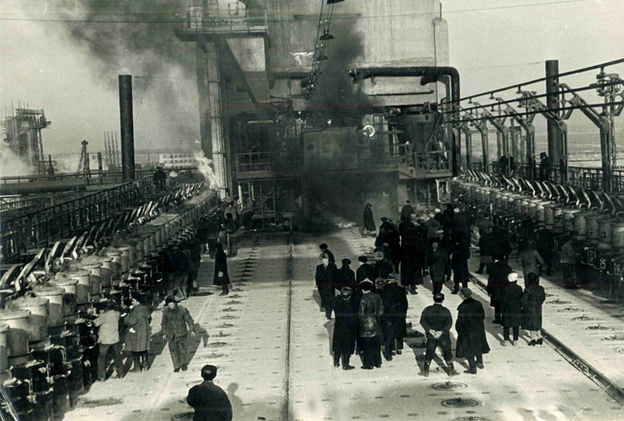
The plant has been in operation for more than half a century and with Ukraine's economy in a dire situation, it is in the country's interest that is stays open.
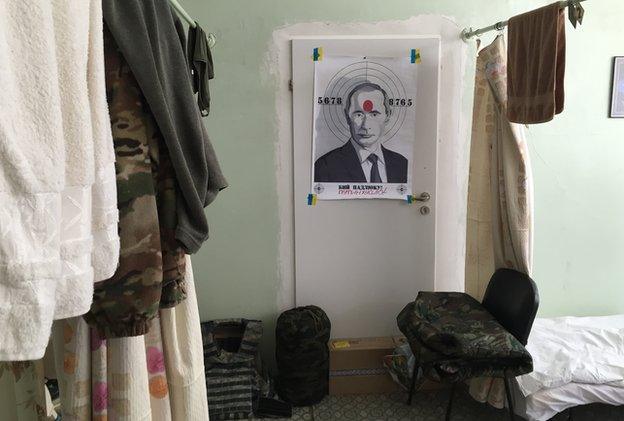
Ukrainian soldiers live in the plant and a poster on the wall of their dormitory highlights the political divide. The economic importance of Ukraine's industrial east is a driving factor in the region's war.
- Published4 April 2015

- Published18 February 2015
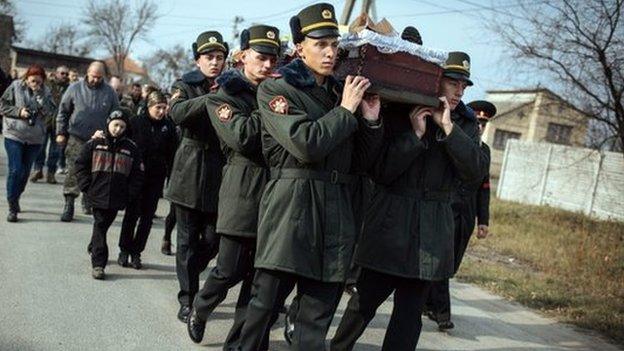
- Published16 April 2015
